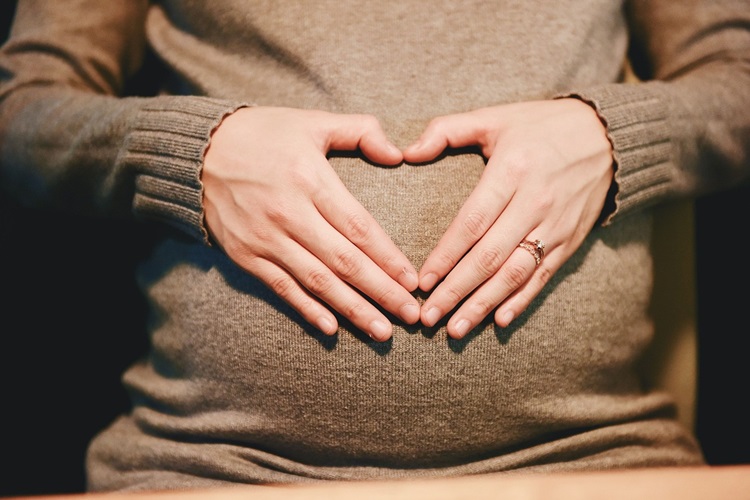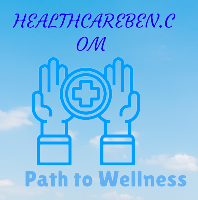Pregnancy: A Beautiful Journey of Creation and Transformation

Pregnancy is one of the most profound and transformative experiences in a woman’s life. It represents the miracle of creation—the development of new life within the womb. While it brings immense joy, anticipation, and love, it also involves physical, emotional, and psychological changes that shape the mother’s journey toward childbirth. Understanding Breech Pregnancy—its stages, symptoms, and care—is essential for ensuring the health and well-being of both the mother and the baby.
The Miracle of Conception
Pregnancy begins with conception, the moment when a sperm fertilizes an egg. This usually occurs in the fallopian tube, after which the fertilized egg (zygote) travels to the uterus and implants itself into the uterine wall. This marks the beginning of a new life. From this tiny cluster of cells, a baby gradually develops over approximately 40 weeks, divided into three distinct trimesters.
The early days after conception often go unnoticed, as many women do not immediately realize they are pregnant. Hormonal changes begin rapidly, particularly the production of human chorionic gonadotropin (hCG), which confirms pregnancy in medical tests.
The Three Trimesters of Pregnancy
Each trimester of pregnancy is marked by unique developmental milestones and changes in both the mother and the baby.
First Trimester (Weeks 1–12)
The first trimester is a period of rapid development and adjustment. The baby’s major organs, including the heart, brain, and spinal cord, begin to form. The placenta, which provides nourishment and oxygen, also starts developing.
For the mother, this stage often brings symptoms like nausea, morning sickness, fatigue, breast tenderness, and mood swings. These are caused by hormonal fluctuations, particularly the rise in estrogen and progesterone. Proper nutrition, rest, and hydration are crucial during this phase to support early fetal development and reduce discomfort.
Second Trimester (Weeks 13–26)
Often considered the most comfortable phase, the second trimester is when many early symptoms subside. The baby’s features become more defined, and the mother may start to feel fetal movements, often referred to as “quickening.” The baby’s heartbeat becomes detectable, and ultrasound scans can reveal the gender if parents choose to know.
Physically, the mother’s belly begins to expand as the uterus grows. Some women experience back pain, leg cramps, and skin changes like stretch marks. This is also the ideal time for expectant mothers to focus on prenatal exercise, as staying active helps maintain strength and flexibility for labor and delivery.
Third Trimester (Weeks 27–40)
The final trimester brings the pregnancy to full term. The baby gains weight rapidly, and the organs mature in preparation for birth. The mother may experience increased fatigue, difficulty sleeping, heartburn, and swelling in the feet or hands due to fluid retention.
During these weeks, regular prenatal checkups become even more important to monitor fetal position, growth, and the mother’s overall health. Braxton Hicks contractions—mild, irregular uterine contractions—may begin as the body prepares for labor.
Pregnancy chiropractic care
Pregnancy chiropractic focuses on supporting a mother’s changing body in a safe, gentle, and natural way. As the spine and pelvis adapt to pregnancy, chiropractic adjustments help maintain proper alignment, reduce common discomforts like lower back pain, pelvic pressure, and sciatic pain, and promote overall comfort. By improving nervous system function and pelvic balance, pregnancy chiropractic care may also support optimal baby positioning and a more comfortable pregnancy experience from the first trimester through postpartum recovery.
Physical and Emotional Changes During Pregnancy
Pregnancy affects every system of the body. The cardiovascular system adapts to support increased blood volume, while hormonal changes impact everything from digestion to mood. Some of the common physical changes include:
-
Weight gain: Healthy weight gain supports fetal development and sustains maternal energy.
-
Skin and hair changes: Increased hormones can cause glowing skin, pigmentation, or hair growth.
-
Digestive changes: Hormonal shifts often slow digestion, leading to constipation or heartburn.
-
Postural changes: As the belly grows, balance shifts, sometimes causing back strain or discomfort.
Emotionally, pregnancy can be a rollercoaster. Excitement, anxiety, and anticipation are common feelings. Hormonal changes may cause mood swings, while concerns about labor, parenting, or body image can add to emotional stress. Support from partners, family, and healthcare professionals is vital for maintaining emotional well-being.
Nutrition and Lifestyle During Pregnancy
A balanced diet during pregnancy is fundamental for both mother and baby. Proper nutrition ensures the baby receives essential nutrients for growth while helping the mother maintain energy and avoid complications. Key nutrients include:
-
Folic acid: Prevents neural tube defects in the baby.
-
Iron: Supports increased blood production and prevents anemia.
-
Calcium and Vitamin D: Essential for bone and teeth development.
-
Protein: Promotes tissue growth and repair.
-
Omega-3 fatty acids: Important for brain and eye development.
Expectant mothers should avoid excessive caffeine, alcohol, tobacco, and certain raw or unpasteurized foods. Hydration is also essential to support metabolism and amniotic fluid levels.
Gentle physical activities such as walking, swimming, and prenatal yoga can enhance flexibility, reduce stress, and prepare the body for labor. However, all exercise plans should be discussed with a healthcare provider.
Prenatal Care and Medical Monitoring
Regular prenatal visits are the cornerstone of a healthy pregnancy. These checkups allow doctors to monitor the baby’s growth, detect potential complications, and provide guidance on diet, supplements, and lifestyle. Common prenatal tests include:
-
Blood pressure and urine tests to check for preeclampsia or gestational diabetes.
-
Ultrasound scans to monitor fetal growth and development.
-
Blood tests for infections, blood type, and Rh factor.
-
Fetal heart rate monitoring.
Prenatal care also includes discussions about childbirth preparation, breastfeeding, and postpartum recovery.
Common Pregnancy Complications
While most pregnancies progress smoothly, some women experience complications that require medical attention. These include:
-
Gestational diabetes: High blood sugar levels during pregnancy that can affect both mother and baby.
-
Preeclampsia: Characterized by high blood pressure and potential organ damage.
-
Preterm labor: Labor that begins before 37 weeks of gestation.
-
Placenta previa: When the placenta covers the cervix, complicating natural delivery.
Early detection through regular prenatal visits ensures that most complications can be managed effectively, ensuring the best possible outcome.
Preparing for Labor and Delivery
As the due date approaches, the focus shifts toward labor preparation. Expectant mothers are encouraged to attend childbirth classes to learn about breathing techniques, pain management, and different birthing options such as natural delivery, water birth, or epidural-assisted birth.
Creating a birth plan—a written outline of preferences regarding labor, pain relief, and delivery—can help mothers feel more in control. Packing a hospital bag in advance, arranging childcare (if necessary), and maintaining open communication with healthcare providers can make the final weeks less stressful.
The Emotional Journey of Motherhood
Beyond the physical aspects, pregnancy is a deeply emotional and spiritual experience. It fosters a profound connection between mother and child even before birth. Feeling the baby’s movements, hearing the heartbeat, and anticipating the first cry are moments filled with wonder.
However, it’s also normal to feel nervous or uncertain about childbirth and motherhood. Emotional support—from partners, family, and prenatal counseling—can make the journey more fulfilling and less overwhelming.
Conclusion
Pregnancy is an extraordinary journey that embodies love, strength, and transformation. It challenges the body, enriches the soul, and prepares a woman for one of life’s greatest roles—motherhood. While each pregnancy is unique, knowledge, preparation, and care help ensure a healthy experience for both mother and baby.
From conception to delivery, pregnancy is not just about growing a baby—it’s about growth in every sense of the word: physical, emotional, and spiritual. It reminds us of the miracle of life and the power of creation within every woman.





